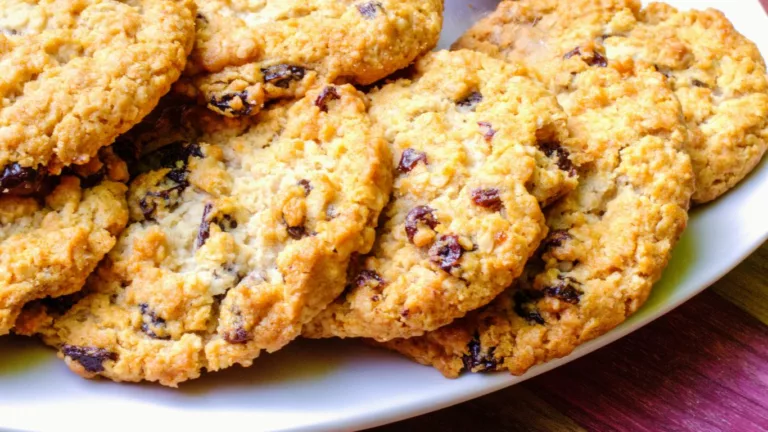Bitter Taste in Throat? How GERD Could Be Ruining Your Gut Health
If you’ve ever had that weird, almost metallic bitter taste in your throat that lingers—especially after eating spicy or greasy foods—you’re not alone. Working as a Medical Assistant in a busy Gastroenterology Clinic, I’ve heard this complaint more times than I can count. It often comes down to one common culprit: GERD and bitter taste in throat. It’s one of those combinations that can really mess with your day-to-day life, and surprisingly, many people don’t even realize they’re connected. Let’s dive into what’s going on and how you can start feeling more like yourself again.
What Is GERD, Really?

GERD, short for Gastroesophageal Reflux Disease, is more than just occasional heartburn. It’s a chronic condition where stomach acid or, sometimes, bile flows back up into the esophagus. This backwash—also called acid reflux—can irritate the lining of your esophagus, and yup, you guessed it, that’s where the bitter taste in your throat comes from. I’ve seen patients describe it as everything from “sour milk” to “like chewing on aspirin.” Not pleasant, to say the least.
Why Does GERD Cause That Awful Bitter Taste?
That bitter taste? It’s not just in your imagination. When acid from your stomach makes its way into your esophagus—and sometimes even into your mouth—it brings that bile and digestive acid with it. This combo can leave behind a nasty, lingering flavor. Some of my patients have even said it wakes them up at night, and honestly, I’ve been there myself.
What’s happening is that the lower esophageal sphincter (LES), the little valve that’s supposed to keep stomach contents where they belong, isn’t doing its job. Whether it’s relaxing when it shouldn’t, or just not closing all the way, acid escapes—and that’s when symptoms like bitter taste kick in.
Common Triggers That Make GERD Worse

Over the years, I’ve noticed some foods and habits that almost always worsen GERD and that pesky bitter taste in the throat. When I bring this up during patient visits, it’s like lightbulbs go off—because so many people don’t realize how closely these everyday choices are linked to their symptoms.
Here are a few big offenders:
- Fatty or fried foods – Think burgers, fries, and fried chicken. Delicious, yes. Friendly to your esophagus? Not so much.
- Spicy dishes – I love hot wings as much as the next person, but they’re a classic reflux trigger.
- Caffeine and carbonated drinks – Coffee, soda, and energy drinks can relax that LES valve, which is not what you want.
- Chocolate and mint – Surprisingly, these sweet treats can make things worse. Sorry, dessert lovers.
- Lying down right after eating – This is a biggie. Gravity is your friend when it comes to digestion.
Real Talk: How GERD Feels Day-to-Day

Let me be real for a second—GERD isn’t just about heartburn. For a lot of the patients I’ve seen (and honestly, myself included), it can affect your mood, your sleep, even your confidence. That bitter taste in the throat can make you second-guess eating out or accepting a coffee date. I had one patient tell me she started skipping breakfast meetings just to avoid dealing with the aftereffects. That’s no way to live, and it’s part of why we take GERD seriously in our clinic.
Other surprising symptoms that tag along:
- Persistent sore throat – Feels like a cold that never quite goes away.
- Chronic cough – Especially noticeable at night or after meals.
- Hoarseness – Some patients think it’s allergies at first.
- Feeling like there’s a lump in your throat – It’s called globus sensation and it’s a weird, uncomfortable feeling.
These might not scream “acid reflux” at first glance, but once we start connecting the dots, the picture becomes a lot clearer. And the good news? Once you identify the triggers and understand what your body’s trying to tell you, there’s a lot you can do to ease the discomfort. Stick around—we’ve got lots more to cover.
How GERD Affects More Than Just Your Throat

When people hear “GERD,” most immediately think heartburn—and sure, that’s a big one—but there’s so much more to it. That bitter taste in your throat? It’s just the beginning. Over time, GERD can start messing with other areas of your life and health, and honestly, I’ve seen it in so many ways at our clinic. I remember this one gentleman who came in thinking he had a dental issue because of that strange taste—turned out it was severe acid reflux all along.
The reality is that untreated GERD can lead to more serious stuff. From damage to your esophagus lining to chronic inflammation, it’s not something to brush off. It can even impact your sinuses, lungs, and sleep patterns. And if you’ve ever dealt with night-time reflux, you know exactly what I’m talking about—hello, midnight coughing fits.
Possible complications if GERD goes unchecked:
- Esophagitis – Inflammation that causes pain and even bleeding in some cases.
- Barrett’s esophagus – A more serious condition that can increase your risk for esophageal cancer (definitely not something to ignore).
- Dental erosion – That acid can wear away your enamel over time.
- Asthma flare-ups – Yep, GERD can trigger or worsen breathing issues.
- Interrupted sleep – Reflux that wakes you up gasping or coughing? Not ideal.
So yeah, it’s way more than just a taste issue.
Day-to-Day Hacks That Actually Help

Now here’s where things get a little more hopeful. Over the years, I’ve picked up some super useful strategies—both from gastro docs I’ve worked with and patients who’ve figured out what works for them. And while not everything works for everyone, there are definitely some tried-and-true habits that help tame that reflux and get rid of the bitter taste in the throat.
Simple lifestyle changes that make a big difference:
- Eat smaller meals – Big portions put more pressure on your stomach, and that means more chances for acid to sneak up.
- Don’t lie down after eating – I usually tell people to wait at least 2-3 hours before they get horizontal. That alone can change everything.
- Elevate your head at night – Gravity is your buddy. A wedge pillow or even some bed risers can keep things from creeping back up your esophagus.
- Chew gum (sugar-free) – Believe it or not, this helps! It increases saliva, which helps neutralize acid.
- Lose a few pounds (if needed) – Even a little weight around the midsection can press on your stomach and make reflux worse. This tip is always handled with sensitivity in clinic, but it really does make a difference.
One of my patients said switching to five smaller meals instead of three big ones completely changed how they felt. It’s really about tuning in to your body and experimenting a little.
What to Eat (And What to Skip)

We can’t talk about GERD without diving into the food side of things. Trust me, this is probably the question I get asked the most—“What should I be eating if I don’t want that horrible taste in my throat again?” And while everyone’s triggers can vary, there are some general patterns I’ve seen work for a lot of folks.
GERD-friendly foods:
- Oatmeal – A breakfast staple that’s easy on your stomach and keeps you full.
- Bananas and melons – Low-acid fruits that are gentle and refreshing.
- Lean meats and fish – Baked or grilled, not fried. Think turkey, chicken, and salmon.
- Green veggies – Broccoli, asparagus, and leafy greens are all stars here.
- Herbal teas – Especially chamomile and ginger tea. Just skip the peppermint!
Foods to avoid (if you want to ditch that bitter aftertaste):
- Tomato-based anything – Sauces, soups, pizza… all super acidic.
- Alcohol – It relaxes the LES, which is exactly what we don’t want.
- Onions and garlic – They seem innocent but can be brutal on reflux.
- Full-fat dairy – Cheese, ice cream, and cream sauces can trigger flare-ups.
- Citrus fruits – Oranges, grapefruits, lemons—delicious but acidic villains.
I always recommend folks keep a little food diary for a week or two. It’s surprising how quickly patterns start to pop up once you track what you eat and how you feel afterward.
When to Talk to Your GI Doc
Here’s the thing—while lifestyle and diet changes can do a ton to ease GERD symptoms and that bitter taste, sometimes it’s not enough. And that’s where your gastroenterologist steps in. At the clinic, I’ve seen patients put off appointments for months, thinking they just needed to “tough it out.” But when you’re dealing with something chronic, expert care really matters.
Here are a few signs it’s time to schedule that visit:
- Symptoms aren’t improving after lifestyle changes
- You’re using antacids more than a few times a week
- You’ve lost weight unintentionally
- Swallowing is becoming painful or difficult
- You’re waking up at night with coughing or choking
I always remind people—getting help isn’t a sign of weakness; it’s the smart move. Your GI doc can walk you through medication options, order imaging, or even refer you for testing like endoscopy if needed. Better to catch and treat issues early than to let things spiral.
Medications That Can Help with GERD and That Bitter Taste

Okay, so maybe you’ve already made the lifestyle changes. You’re eating lighter meals, skipping the spicy wings, sleeping with your head elevated… and yet, that annoying bitter taste in your throat still shows up. When that happens, it might be time to talk about medication.
In our Gastro clinic, I’ve seen a lot of folks get real relief once they found the right meds. The key is figuring out what works for your body—because not everyone responds the same way. I always tell patients: “Don’t give up if the first thing doesn’t work. There’s a whole toolbox of options we can try.”
Common medication options:
- Antacids – Quick relief for mild symptoms. These neutralize stomach acid on the spot (think TUMS or Rolaids).
- H2 blockers – Reduce the amount of acid your stomach makes (like ranitidine or famotidine). These are often a good middle-ground.
- Proton pump inhibitors (PPIs) – These are the heavy hitters. They block acid production more effectively (omeprazole, esomeprazole, etc.).
- Prokinetics – Less common but helpful for people who have slow digestion or lots of regurgitation. They help move things along.
It’s really important to use these under the guidance of a healthcare provider—especially PPIs, since long-term use can come with risks like nutrient deficiencies or even bone loss. That’s why we always monitor patients closely and adjust treatment as needed.
Alternative Remedies and Supportive Therapies

Now, I know not everyone wants to jump straight to medication—and that’s totally fair. I’ve had plenty of patients ask, “Is there anything natural I can try first?” And while it’s not a one-size-fits-all deal, there *are* some alternative remedies people swear by. Some work surprisingly well when paired with other changes.
Some popular (and gentle) options:
- Aloe vera juice – It’s soothing for the digestive tract and may reduce inflammation.
- Slippery elm – This supplement forms a protective coating in the esophagus. Not the best-tasting thing in the world, but some folks swear by it.
- Licorice root (DGL) – Not the candy! Deglycyrrhizinated licorice has a mucosal healing effect.
- Ginger – Sliced fresh ginger in hot water makes a calming tea that supports digestion.
- Acupuncture – Believe it or not, I’ve had a couple of patients tell me this actually helped reduce their reflux flares over time.
Of course, run these ideas by your doctor before starting anything new—especially if you’re already on medication. Some supplements can interfere with prescriptions, so it’s always better to be safe.
Staying Consistent and Knowing Your Triggers
One thing I always emphasize—and I know it sounds simple—is that consistency is everything. You could have the perfect plan, but if it’s only followed half the time, GERD will find a way to sneak back in. That bitter taste in the throat doesn’t care if it’s “just one night of pizza and wine.”
What’s worked best for my patients (and myself!) is developing routines. Things like prepping GERD-friendly meals in advance, carrying antacids just in case, or setting reminders not to snack late at night. It takes some effort up front, but the payoff? Waking up without that burning, bitter sensation? Totally worth it.
Quick recap of smart habits:
- Stick to smaller meals throughout the day
- Keep a food and symptom journal to spot patterns
- Make sleeping posture part of your routine
- Use medications or supplements consistently if prescribed
- Stay hydrated—but sip water slowly instead of chugging
It’s about progress, not perfection. I always cheer my patients on for even the small wins—because over time, they add up to big improvements.
Wrapping It Up (But Don’t Let Your Guard Down)
So if you’ve been dealing with GERD and that bitter taste in your throat, just know: you’re not stuck with it forever. There’s a path forward, and it’s one you can actually feel good about. Whether it’s tweaking your meals, getting the right treatment plan, or simply understanding your body better, every step helps.
I’ve worked with patients from all walks of life—young, old, super health-conscious, and some who just wanted to feel normal again without totally changing their lifestyle. And the best part? Relief is possible. It might take some experimenting and a little patience, but you’ve got options. Just don’t ignore the signs your body’s giving you—and definitely don’t let bitter taste symptoms keep you from enjoying your favorite foods and moments.
References
- Mayo Clinic
- Cleveland Clinic
- National Institute of Diabetes and Digestive and Kidney Diseases (NIDDK)
- GERD Help
Disclaimer
This article is intended for informational purposes only and is not a substitute for professional medical advice, diagnosis, or treatment. Always consult with your healthcare provider before making any changes to your diet, lifestyle, or medication. The views shared here are based on personal experience as a Medical Assistant and should be used to supplement—never replace—individualized care.

Camellia Wulansari is a dedicated Medical Assistant at a local clinic and a passionate health writer at Healthusias.com. With years of hands-on experience in patient care and a deep interest in preventive medicine, she bridges the gap between clinical knowledge and accessible health information. Camellia specializes in writing about digestive health, chronic conditions like GERD and hypertension, respiratory issues, and autoimmune diseases, aiming to empower readers with practical, easy-to-understand insights. When she’s not assisting patients or writing, you’ll find her enjoying quiet mornings with coffee and a medical journal in hand—or jamming to her favorite metal band, Lamb of God.







